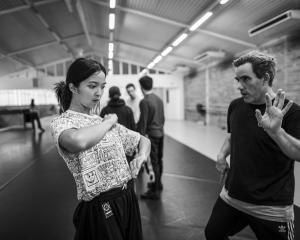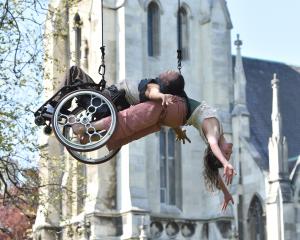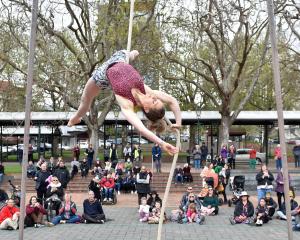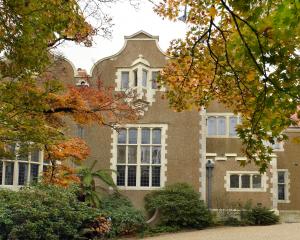A young audience enjoyed a collection of classical hits, a swoon of melodic tonic Late Romantic works performed by the NZSO under the baton of Hamish McKeich at the Dunedin Town Hall on Friday evening.
Some obviously think a British Prom tradition is worth retaining in a festival at the other side of the world but it obliterated an opportunity to celebrate with a full programme of Dunedin composers opening the Dunedin Festival.
As the programme stands, Dame Gillian Whitehead’s powerfully astringent and disquieting work Turanga-nui was tragically isolated. Whitehead’s work commemorates the immediate and long-term effect Captain’s Cook’s first landing on Aotearoa soil at Turangi-nui-a-kiwa [Poverty Bay].

Whitehead’s music deserves the respect shown her by the audience. The vision within her magnificently honed and honest evocation of the ongoing impact of cultural collision in Aotearoa New Zealand deserves to be flanked with supportive works.
There is something undeniably addictive about the introspective swooning of late Romanticism as presented by the NZSO with virtuosic flourish.
The orchestra highlighted the melodic seduction in Schubert’s “Unfinished” Symphony No 8 in B minor and the luxurious climaxes in Tchaikovsky’s Romeo and Juliet Fantasy Overture.
Debussy’s Prelude a l’apres-midi d’un faun presented principal flautist Bridgette Douglas with a golden opportunity to shine.
After a rather lightweight opening, the orchestra was allowed to unleash itself on the work’s florid climaxes. Solo cellist Andrew Joyce flexed his virtuosity in Tchaikovsky’s Variations on a Rococo Theme and was warmly rewarded by an audience new to NZSO concerts.
- by Marian Poole












